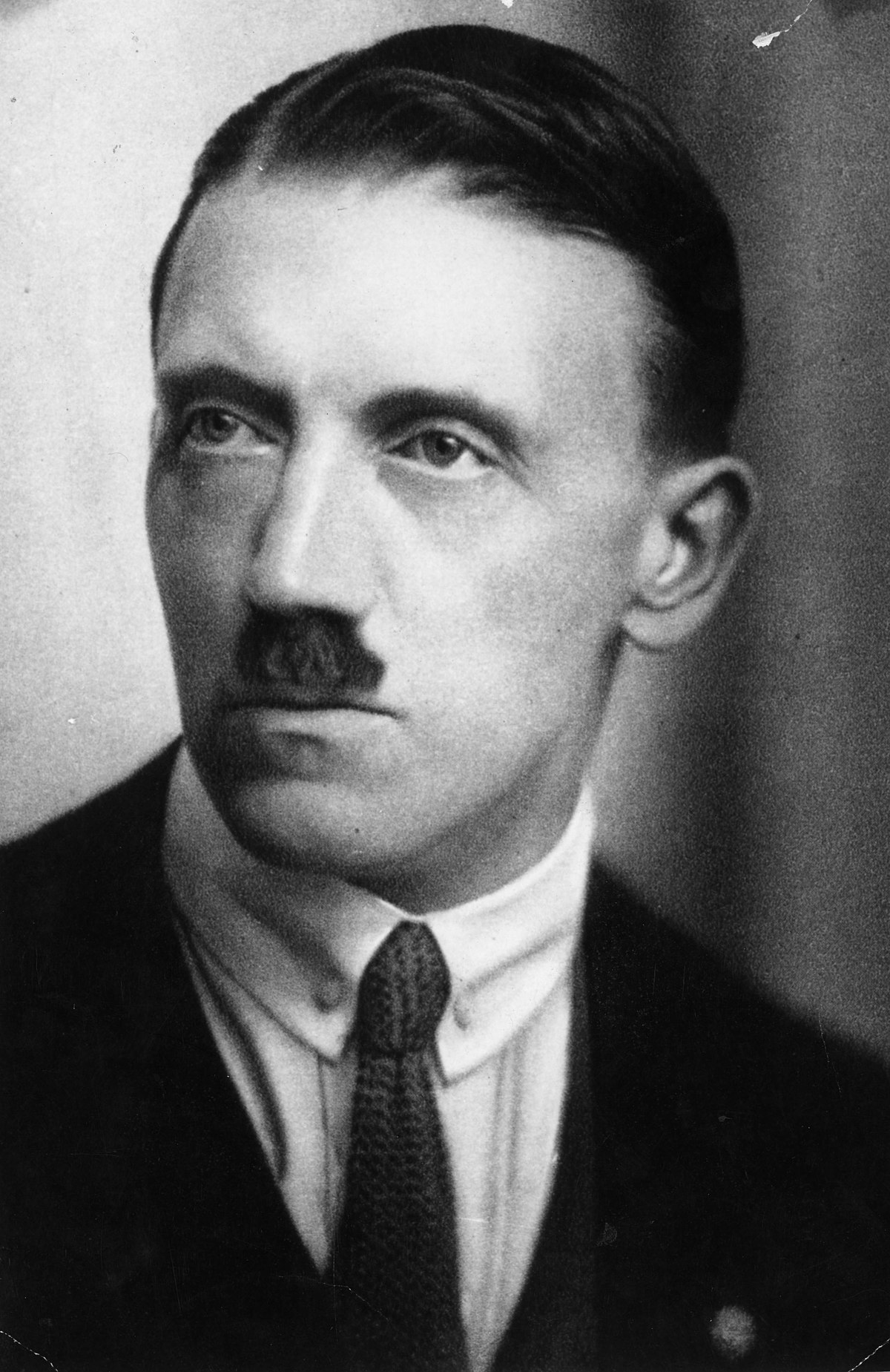Shall we read together?
"But the worldwide economic depression and the rising power of labor unions and communists convinced increasing numbers of Germans to turn to the Nazi Party. The Nazis fed on bank failures and unemployment—proof, Hitler said, of the ineffectiveness of democratic government. Hitler pledged to restore prosperity, create civil order (by crushing industrial strikes and street demonstrations by communists and socialists), eliminate the influence of Jewish financiers, and make the fatherland once again a world power."
So, they're saying people were more supportive of the Nazis... because people were opposed to the communists... and Hitler promised to stop the communists... who were in the streets doing pretty much exactly what they're doing now. And eventually civil liberties were suspended when a communist set the parliament building on fire.
Do you really not see the parallels to modern day?
Okay let's read:
Germany during the 1920s the Nazis took advantage of circumstances, and used propaganda and Hitler’s leadership to appeal to different groups and increase their popularity.
- Communists believed all private ownership of land and assets was theft. Germany’s rich landowners and businessmen wanted to prevent communists gaining any political influence at all.
- The Nazis were violently opposed to communism and the SA often attacked communist groups in the beer halls and the streets. This led to many landowners and businessmen supporting the Nazis.
- The economic crash in the USA in 1929 meant that the loans given to Germany under the 1924 Dawes Plan were called in.
- The German economy could not survive and as a result businesses closed and many Germans became unemployed. This worsened the situation with a lack of demand for goods leading to more closures and job losses.
Where there’s smoke, there’s fire, and where there’s fire, conspiracy theories are sure to follow. At least, that’s what happened in Germany on February 27, 1933, when a sizeable portion of the parliamentary building in Berlin, the
Reichstag, went up in flames from an arson attack.
It was the canary in the political coal mine—a flashpoint event when Adolf Hitler played upon public and political fears to consolidate power, setting the stage for the rise of Nazi Germany. Since then, it’s become a powerful political metaphor. Whenever citizens and politicians feel threatened by executive overreach, the “Reichstag Fire” is referenced as a cautionary tale.
Following a stint in jail for his failed Beer Hall Putsch in 1923, Hitler poured his energy into attaining power through legal channels. He rose to the head of the National Socialist German Workers’ Party (Nazis), and by 1928 the group’s membership exceeded 100,000. The Nazis denounced the Weimar Republic and the “November criminals,” politicians had signed the Treaty of Versailles. The treaty forced Germany to accept responsibility for World War I, pay huge remunerations, transfer territory to their neighbors and limit the size of the military.
Despite its considerable growth, the Nazi party won only 2.6 percent of the vote in the 1928 election. But then the Great Depression hit, sending the U.S. and Europe into an economic tailspin and shooting the number of unemployed up to 6 million people in Germany (around 30 percent of the population). The sudden slump caused massive social upheaval, which the Nazis exploited to gain further political traction. By 1930, the Nazis won 18.3 percent of the Reichstag vote and became the second largest party after the Social Democrats, while the Communist party also grew to ten percent of the vote.
The economic unrest of the early 1930s meant that no single political party had a majority in the Reichstag, so fragile coalitions held the nation together. Faced with political chaos, President Paul von Hindenburg dissolved the Reichstag again and again. Frequent elections followed.
The Nazis aligned with other right-leaning factions and gradually worked their way up to 33 percent of the vote—but were unable to reach a full majority. In January 1933, Hindenburg reluctantly appointed Hitler as chancellor on the advice of Franz von Papen, a disgruntled former chancellor who believed the conservative bourgeois parties should ally with the Nazis to keep the Communists out of power. March 5 was set as the date for another series of Reichstag elections in hopes that one party might finally achieve the majority.
Meanwhile, the Nazis seized even more power, infiltrating the police and empowering ordinary party members as law enforcement officers. On February 22, Hitler used his powers as chancellor to enroll 50,000 Nazi SA men (also known as stormtroopers) as auxiliary police. Two days later, Hermann Göring, Minister of the Interior and one of Hitler’s closest compatriots, ordered a raid on Communist headquarters. Following the raid, the Nazis announced (falsely) that they’d found evidence of seditious material. They claimed the Communists were planning to attack public buildings.
On the night of February 27, around 9:00, pedestrians near the Reichstag heard the sound of breaking glass. Soon after, flames erupted from the building. It took fire engines hours to quell the fire, which destroyed the debating chamber and the Reichstag’s gilded cupola, ultimately causing over $1 million in damage. Police arrested an unemployed Dutch construction worker named Marinus van der Lubbe on the scene. The young man was found outside the building with firelighters in his possession and was panting and sweaty.
“This is a God-given signal,” Hitler told von Papen when they arrived on the scene. “If this fire, as I believe, is the work of the Communists, then we must crush out this murderous pest with an iron fist.”
A few hours later, on February 28, Hindenburg invoked Article 48 and the cabinet drew up the “Decree of the Reich President for the Protection of the People and State.” The act abolished freedom of speech, assembly, privacy and the press; legalized phone tapping and interception of correspondence; and suspended the autonomy of federated states, like Bavaria. That night around 4,000 people were arrested, imprisoned and tortured by the SA. Although the Communist party had won 17 percent of the Reichstag elections in November 1932, and the German people elected 81 Communist deputies in the March 5 elections, many were detained indefinitely after the fire. Their empty seats left the Nazis largely free to do as they wished.
On the topic at hand, I really wish I was surprised by this, but given how right wing media tries to keep their audience in a constant froth of outrage over even the most sensible things that Democrats do regardless of the merits or political persuasion, as well as Republicans active attempt to...

forums.escapistmagazine.com

 en.wikipedia.org
en.wikipedia.org

